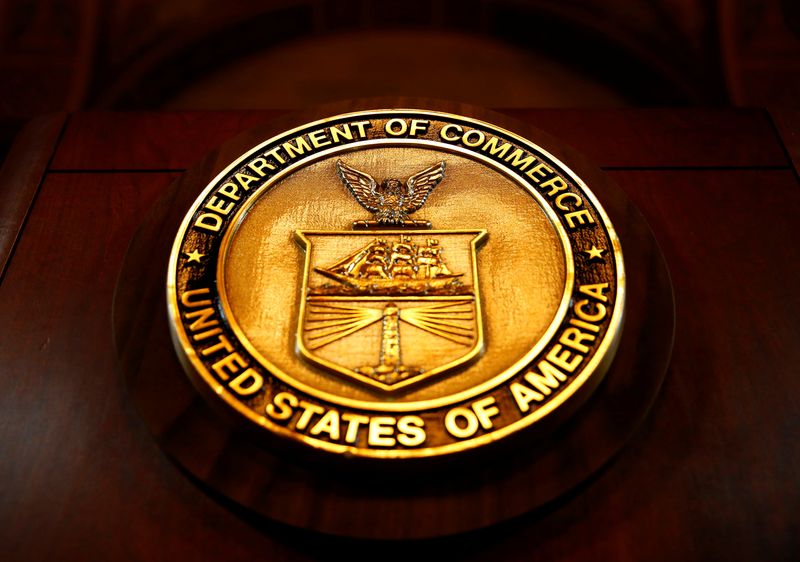By Karen Freifeld and Stephen Nellis
(Reuters) -Nvidia Corp, Advanced Micro Devices (NASDAQ:AMD) Inc and other tech firms are scrambling to assess whether they must halt sales to units of China's Inspur Group Ltd after its addition to a U.S. export blacklist last week.
The United States last week added Inspur to its trade blacklist for allegedly acquiring U.S.-origin items in support of the China's military modernization efforts. The listing means that companies cannot sell Inspur items like semiconductors, which are made with U.S. tools, unless they apply for and get licenses, which are likely to be denied.
A U.S. Department of Commerce spokesperson told Reuters on Tuesday that it "is reviewing Inspur Group Co Ltd's Entity List entry and will update it as appropriate," referring to the official name of the export blacklist.
Executives from AMD and Nvidia (NASDAQ:NVDA) were questioned about dealings with Inspur Group Co Ltd. at an investor conference on Monday. AMD said it was seeking clarification on the rules.
While not a household name, Inspur's Chinese-listed subsidiary had nearly $10 billion in sales in 2021 and Inspur Group is the world's third-largest supplier of the servers used in data centers that power cloud computing, according to market research firm IDC figures for the third quarter of 2022, the most recent available.
But chip industry insiders and their advisers said firms are trying to assess whether they must halt supplying Inspur's subsidiaries, including Inspur Electronics Information Industry Co, which is not automatically subject to the restrictions.
U.S. regulators could view unlicensed shipments to that subsidiary as a violation of last week's listing if there is a risk of the goods going from the unlisted subsidiary to the listed parent.
Inspur Electronics Information Industry Co has the same corporate address as the blacklisted parent company. The company on Monday proposed changing its address in a filing. The proposal, which shareholders will vote on later this month, did not specify a new address.
"Shipments to related entities constitute a ‘red flag’ due to the risk of diversion," the Commerce Department spokesperson said in a statement.
Inspur did not return a request for comment. Last week, an official from the Chinese Embassy in Washington told Reuters that China was "firmly opposed" to the placement of Inspur and 27 other companies on the trade blacklist.
A Chinese Foreign Ministry spokesperson last week also said the U.S. was "once again cracking down on Chinese companies under false pretexts through unfair means."
Dan Fisher-Owens, an export law attorney at Berliner Corcoran & Rowe who works with chip firms, said many of his clients have paused shipments to Inspur's subsidiaries to assess the situation.
At an investor conference in San Francisco on Monday, Nvidia Chief Financial Officer Colette Kress said the company will "follow export controls very closely" but did not comment on whether Nvidia has stopped shipping to Inspur subsidiaries.
"We will probably be working with other partners," Kress said. An Nvidia spokesperson declined to comment beyond her remarks.
An AMD spokesperson did not return a request for additional comment on AMD Chief Technology Officer Mark Papermaster's remarks made at the same conference.

Inspur's listing is even more restrictive than many other companies on the U.S. Department of Commerce's "entity list," and may be comparable to the curbs placed on China's blacklisted telecommunications company, Huawei Technologies, one person familiar with the matter said.
As with Huawei, the listing restricts the shipment of products to Inspur even if they are made in a foreign country but with U.S. technology. Those products also cannot go to Inspur's subsidiaries if the blacklisted corporate parent is considered a party to the transaction, under a broad definition of the term, the person said.